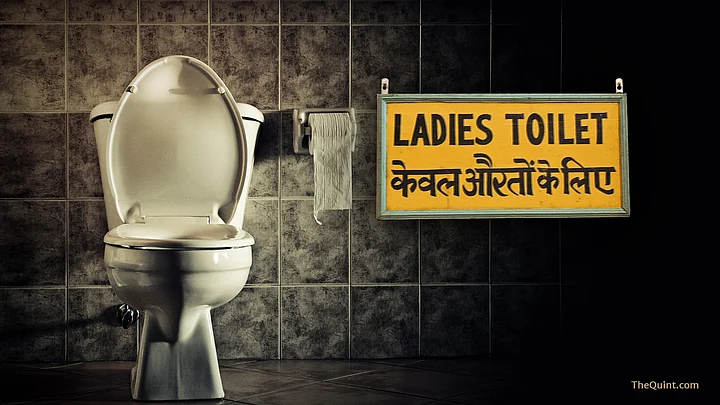In the last four years, India has been hurtling towards its ambitious goal of becoming open defecation-free by 2019. Irrespective of whether we meet this goal, the Swachh Bharat Mission has brought the conversation about cleanliness and toilets into our everyday lives.
Swachh Bharat is everywhere. We see and hear it in our movies, on the community radio, on television ads featuring our leading celebrities, and in our Prime Minister’s widely followed speeches.
Are All Women Truly Equal?
In its inception, one of the key tenets of the Swachh Bharat programme was protecting the dignity of women in our society by providing them with safe, private sanitation spaces. Yet, one group of women remain excluded from the conversation about dignity in sanitation — manual scavengers.
Manual scavengers are tasked with removing and disposing of human waste from pit-latrines, septic tanks, sewers and railways lines. Almost all manual scavengers belong to specific sub-castes of Dalits, who have been placed at the bottom of the hierarchy of India’s traditional caste system.
Rooted within the caste system is an additional layer of patriarchy where the most dehumanising jobs fall to women. “Within Dalit families, women are the ones who clean the human excreta from the dry pit latrines because this task offers the lowest wages,” says Bezwada Wilson, who was awarded the Magsaysay award in 2016 for his activism towards eradicating this dehumanising malaise. “Men are more likely to clean the human waste on the railway lines and sewers where the wages are higher.”
Of the 1.3 million manual scavengers in the country, most are women. As the government builds more and more latrines across the country, the question remains: What implications does this policy have on the lives of Dalit women?
“The local government officer is only concerned with building latrines, not about how the pits of these latrines will be emptied,” says Sangita Vyas, associate director at the Research Institute for Compassionate Economics that conducts research on sanitation in rural India. “But most rural Indians don’t want to empty the pits themselves. What happens if everybody starts using these latrines and, in a few years, the pits need to be emptied?”
Plight of Women Manual Scavengers
Most women crawl into these pits to empty human waste into a basket which they then carry on their heads to dispose of. Not only does the waste spill onto their bodies as they carry these baskets, entrenched notions of purity lead to active discrimination from upper castes. This takes the form of lack of access to public services, threats of sexual violence, and segregation of their children in schools.
Under the 2013 law passed to provide rehabilitation to manual scavengers, the government offers a loan to all manual scavengers to help them find sustainable, alternative livelihoods. However, the reality on the ground paints a different picture.
Even among those eligible to receive the rehabilitation, women report difficulties accessing loans, with barriers ranging from misallocation of funds to insufficient paperwork. When they try to access alternative jobs, they face abuse and threats from their communities.
Existing government data does not reflect the true magnitude of manual scavenging across the country. As of August 2017, only 13,368 manual scavengers had been identified across the country.
Despite the government promising to conduct a new survey of manual scavengers, activists claim that progress on the ground has been limited.
What Swachh Bharat Doesn’t Address — Inequality
How will rehabilitation ever be successful if we cannot even acknowledge that manual scavenging exists?
“There are some courageous Dalit women who want to burn their baskets and no longer practice manual scavenging,” says Wilson. “Yet, they have been waiting to be rehabilitated for years, or are simply unable to access the loans. Seeing their plight, other women are scared to follow in their path.”
We need to address the systemic caste and gender-based discrimination that undergirds not just our government’s policies but also our society.
In the absence of government intervention, civil society has emerged at the forefront of the sustainable and inclusive sanitation movement. Organisations like Jan Sahas and Wilson’s Safai Karmachari Andolan (SKA) continue to fight to eradicate this practice and uphold the rights and dignity of manual scavengers, particularly the women, through advocacy and rehabilitation and training programmes.
While the government has engaged in dialogue with these organisations, institutional shifts have remained absent. It is not only about enacting laws, but also enforcing laws. “Mindsets will have to change through the government,” says Wilson. “If you say the government doesn’t have the power to change minds, then what is the point of the Swachh Bharat campaign?”
In its current form, the government’s sanitation strategy has focused on chasing numbers, be it the number of toilets built or the number of states declared open defecation-free. A truly equitable sanitation policy will be one that is committed not just to ending open defecation, but abolishing manual scavenging, not just on paper but also in practice.
Until then, we must continue to ask our leaders this question: does our notion of dignity in sanitation extend only to upper-caste women?
(Niriksha Shetty is a graduate student studying international development at the Harvard Kennedy School. Views expressed are the author’s own. The Quint neither endorses nor is responsible for them.)
(The Quint is now on WhatsApp. To receive handpicked stories on topics you care about, subscribe to our WhatsApp services. Just go to TheQuint.com/WhatsApp and hit send)
(At The Quint, we question everything. Play an active role in shaping our journalism by becoming a member today.)
